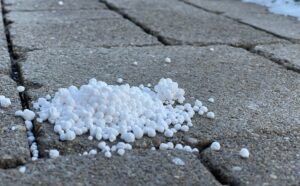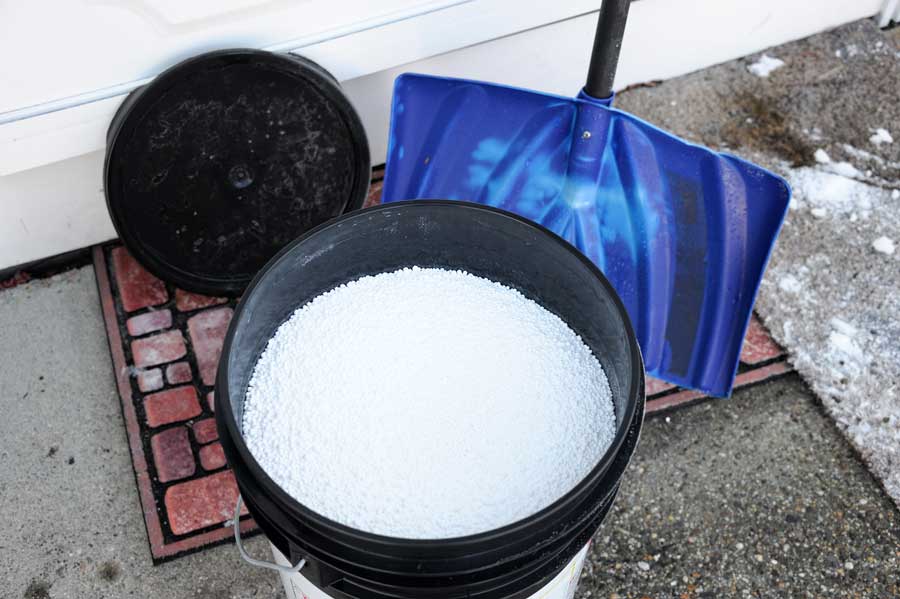Short answer is, “Yes, rock salt is safe for pavers.”

Winter is inevitable and with the winter season comes heavy snow and ice. While your paver walkway looks great during the summer months, how will it hold up over the course of the winter? Concrete pavers are manufactured at a very high compressive strength making them denser than poured concrete and less susceptible to flaking or cracking. This increased durability allows for some flexibility when it comes to winter maintenance.
So why would I use salt for pavers?
During the winter period, it’s common for pavers to become slippery due to ice and snow. To prevent accidents and injuries, many homeowners choose to use ice melt products on their pavers. Ice melt products, such as calcium chloride and rock salt, work by lowering the freezing point of water, which causes ice and snow to melt at lower temperatures. This helps to keep pavers clear of ice and snow, making them safer to walk on. Additionally, using ice melt on pavers can also help to prevent damage caused by the freeze-thaw cycle. When water seeps into the cracks of pavers and then freezes, it can cause the pavers to shift and become uneven. By using ice melt on pavers, you can help to prevent this type of damage.
What steps should you take when a winter storm is approaching in order to maintain a safe environment while preserving the integrity of your concrete pavers?
While it may seem like a complicated topic, some general practices to follow are:
- Use a plastic, poly or Teflon shovel (Do not use a metal shovel)
- If you don’t need to apply salt, resist the urge to do so
- If ice accumulates, use a deicing agent sparingly (Cautiously applied Calcium Chloride is recommended)
- Avoid over spreading your deicing agent onto surrounding plant and turf areas
- Once the winter season has passed, wash off your pavers to remove any excess residue
- Consider sealing your pavers to preserve their composition
So, what type of “salt” is safe for my pavers?
Once you’ve removed all of your snow, it is time to decide if the area requires salting. If temperatures and sun will melt the snow residue in a timely fashion, then consider resisting a salt application. If you’ve determined that you will need to apply a de-icing agent to your pavers, you should be prepared with the proper material. There are many de-icing agents available and the choices can be overwhelming.
PROS and CONS of the Different DE-ICING Agents
| PROS | CONS | |
| SODIUM CHLORIDE (ROCK SALT) | Readily available
Inexpensive |
Can damage surrounding plant material
Works slowly Effectiveness wanes below 25˚F |
| CALIUM CHLORIDE | Less damaging to plants, turf and waterways
Works quickly Effective down to -25˚F |
High cost compared to Rock Salt
|
| POTASSIUM CHLORIDE | Less damaging to plants, turf and waterways
Works less quickly than Calcium Chloride, but quicker than rock salt Effective down to 10˚F
|
High cost compared to rock salt
Not readily available
|
| MAGNESIUM CHLORIDE | NOT RECOMMENDED | NOT RECOMMENDED |
As the snow season winds down and the temperatures begin to rise, put away your shovel and bring out your garden hose to wash off any excess salt residue from the pavers and surrounding turf and planting areas. Consider calling us to have your pavers power washed, resanded and sealed to ensure the longevity of your investment. Congratulations, you made it through another winter!








